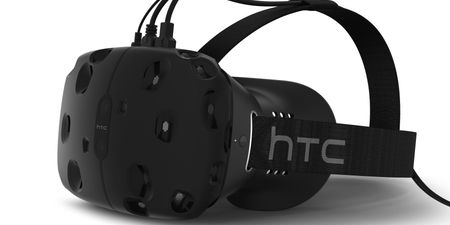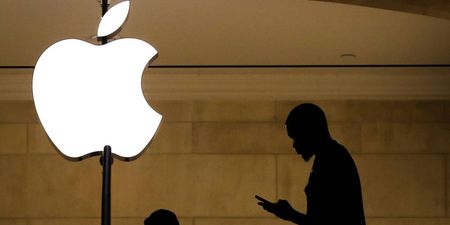The hardware arms race in gaming might be coming to an end with the introduction of cloud gaming, a technology that could make the PS3 and Xbox obselete.
By Leo Stiles
There is a version of the future in which there are no games consoles, there are no discs or game stores and where all you need to play the greatest games known to man is a decent internet connection and an internet browser. That’s right; you can say a tearful goodbye to your Playstation and hold a funeral for your Xbox, because the future of gaming might just be in the clouds.
Cloud computing is set to revolutionise the way we use our PCs and laptops, which instead of being expensive machines that run expensive software will become lightweight and cheap devices and will connect to the internet to access all the programs that traditionally have been installed on their drives.
Google is leading this particular charge and plans to launch the world’s first operating system based on the technology towards the end of the year called Chrome OS, which will ship with low-end netbooks and give them capabilities that match traditional machines costing three to four times as much. So, what does all this have to do with gaming?
The answer is everything. Games are the most resource-hungry programs you can run on your computer. They eat up everything from computational power, to memory and battery life and require a huge investment from gamers as they fight to keep their PCs up to date with the latest hardware in order to run the latest blockbuster.
Traditionally, if you couldn’t stomach the cost of maintaining a PC gaming rig, the answer was to move to consoles, where the upfront cost of your favourite pastime only went as far as a one-off purchase of the machine and a few games. Even games consoles are not immune to hardware upgrades and the latest generation of console hardware has been very expensive, especially the PS3 which first launched in Ireland in 2007 with a price tag of €700.
Right now there are two cloud gaming services which hope to change the way you play games; Gaikai and OnLive. Both services use the power of cloud computing to deliver cutting edge games on computers that otherwise would struggle to run Tetris.
OnLive will be the first cloud gaming service to reach the market and unlike its rivals will allow its subscribers to play games on a TV and not just on a computer. To play on a TV, users will need to buy a cheap video decoder and a separate controller.
No games will be installed on the player’s machine, instead everything including video and controller inputs will be streamed over the internet, meaning that games should be able to run at their highest possible settings, even on a €200 netbook as all the heavy lifting will be done by dedicated servers located as much as 100 miles away.
Gaikai is a different proposition and is spearheaded by Dave Perry, a former games designer who created some classic games in the 90s, including Earthworm Jim. Rather than offering a full blown subscription based service, Gaikai will be give gamers instant access to demos via a web browser plug-in similar to Flash, the software that powers most of the videos on the internet.
To play a game, all you have to do is hit the play button in the same way as you would for any YouTube clip and then wait for the game to load. This appears to work on just about any web browser and the service has been recently demonstrated by running World of Warcraft on the iPad.
Storm clouds on the horizon.
Sounds good, doesn’t it? Unfortunately, it’s all a little too good to be true because there are a couple of obstacles that just might make the whole technology fall flat on its face.
The first is internet lag. Any seasoned player of Call of Duty will have encountered the game breaking effects of lag, which can range from delayed command response times or more serious update lag, which results in enemy players jerking across the battlefield. The more serious cases of this are linked to some players having poor internet connections or a badly configured router and are easily fixed.
For cloud gaming, any local fixes may not be enough because in the case of OnLive the game content is streamed to the player’s computer. Any player movements are sent back to the OnLive data centres where they are processed and streamed back to the player’s computer resulting in the desired movement. This is a huge amount of stress to put on an internet connection and independent tests have revealed that the overall quality of service varies greatly from what OnLive has promised.
We’ve all seen pixelated videos on the internet but imagine if you were trying to play a fast paced driving game and the image was all blurry and your car was barely responding to your commands; you would be running back to your expensive PC in an instant.
OnLive has stated that to get a good experience on their network, users should have broadband speeds of 5Mb or higher, which is nearly double national average speed and doesn’t bode well for the service when it finally arrives on Irish shores.
The other barrier to entry is the amount you will have to pay for the services. Gaikai will be a free demo service to begin with and the company has yet to disclose what they will charge users for their eventual pay-per-play price model.
OnLive has already came out and put a $4.99 per month charge on access to its services in the US. This doesn’t sound too bad, especially as this is what Microsoft has been charging for Xbox Live for the last five years. The real problem here is that OnLive will still be charging full retail prices for any games you wish to play, with new releases such as Modern Warfare 2 costing American players around $50.
$50 is same price as it would cost to buy the game in a bricks and mortar shop where there are retail overheads, margins and VAT all contributing to the price. Users of the service also lose the ability to trade their old games as they never actually own anything.
OnLive and Gaikai are not expected to launch in America until late next year where they will get their first real world test of the technology. That’s still plenty of time to iron out the problems and refine their pricing models. Even if they crash and burn, cloud gaming is still going to be the future, just not as soon as some business’ would like it to be.
LISTEN: You Must Be Jokin’ with Conor Sketches | Tiger Woods loves Ger Loughnane and cosplaying as Charles LeClerc



















































